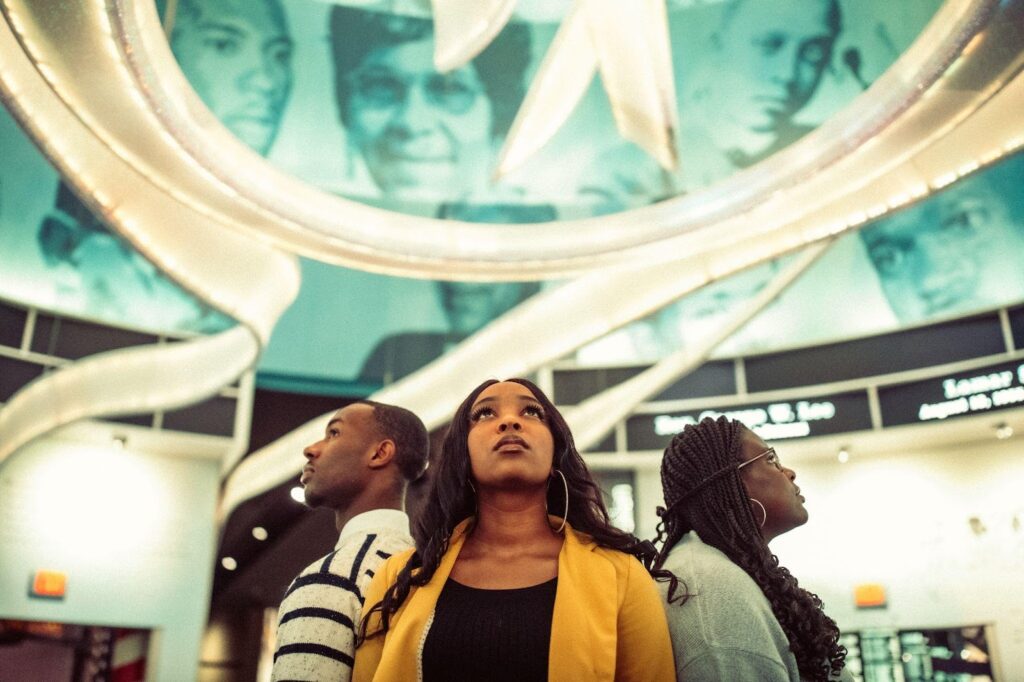
Although impact fellowships have been established for decades and are increasing in number, as found by ProFellow and IREX’s collaborative Fellowship Industry Report, until now, there has been limited research on how to sustain robust fellowship alumni networks. In this interview, we were pleased to speak with Philip Davidovich, technical advisor at IREX, and Xiomara Enriquez, leadership programs officer at the W.K. Kellogg Foundation, to learn about the 2023 Fellowships Alumni Network Study (FANS).
The FANS research delved into key questions on how fellowship alumni networks currently function and how they can be better sustained. Many of these questions initially emerged from the Impact Fellowship Summit (IFS), an annual gathering of fellowship leaders and organizations. The study addressed:
- How can fellowship fellowship programs understand the impact alumni networks have on their fellows?
- How can fellowship programs foster a network community that supports alumni in their work?
In this interview, Philip and Xiomara share how this research emerged, how the study was designed, and key research findings that support the needs of fellowship organizations seeking to improve the outcomes of their alumni networks.
What prompted the development of the Fellowships Alumni Network Study (FANS), and what was the goal?
Xiomara: In April 2020, the W.K. Kellogg Foundation (WKKF) transitioned the management of its fellowship network from an outside partner to its internal leadership team. This was a massive undertaking because it brought alumni from a diverse range of programs together into one global fellowship network. The WKKF team saw this as an excellent opportunity to learn from the field with communities like the Impact Fellowships Summit (IFS), a forum for leaders and managers of fellowship programs to come together and learn from one another.
Over the last few years, IREX has managed the Impact Fellowship Summit (IFS) community. IFS is a network and annual gathering of leaders and designers of fellowship programs that support leaders driving positive change in communities. As a sponsor of the annual IFS conference, WKKF saw significant growth in demand for learning and resources around alumni engagement and contributions to change beyond the initial fellowship program. Together, WKKF and IREX saw the opportunity to collaborate with diverse global organizations and learn from one another by sharing their experiences and engaging with their respective fellowship networks. That prompted the development of FANS – a collaborative research initiative facilitated by IREX and funded by WKKF, that would bring together organizations across the fellowship sector to answer the following research questions:
-
- To what extent do alumni who are part of a fellowship network contribute to changes at different levels of society (e.g., individuals, institutions, communities, and systems)?
- How do networks support alumni to contribute to changes at different levels of society?
The goal of FANS was to advance a significant gap in research and learning that exists in the fellowship sector and, in doing so, inform continued learning on how fellowship programs can support their alumni to drive positive social change.
How did the FANS Report come together, and who was involved?
Xiomara: FANS began in February 2022, and IREX’s close engagement with the IFS community was hugely important in getting it off the ground. To conduct the study, over 20 organizations that represented diverse fellowship program donors and implementers from around the world volunteered their time to make up the research consortium. These organizations made FANS happen.
Phil: As you might expect from a collaborative research approach, the purpose of this research consortium was to help advance every element of FANS, including the design of data collection tools and activities, informing analysis and learning priorities, and shaping the report itself. This was an important element because it built a community of learning partners that could see their programs meaningfully reflected in the findings. Of course, there was a big IREX team that facilitated each of these elements within the consortium, so before we continue, I’d like to shout out the rest of the IREX team members who made FANS happen:
-
- Rebecca Zylberman, Partnerships Lead
- Nina Oduro, Program start-up Manager
- Grace Chimezie, Research officer
- Aisha Thompson-Banton, Technical advisor
- Isabella Petros-Webber, Data analyst
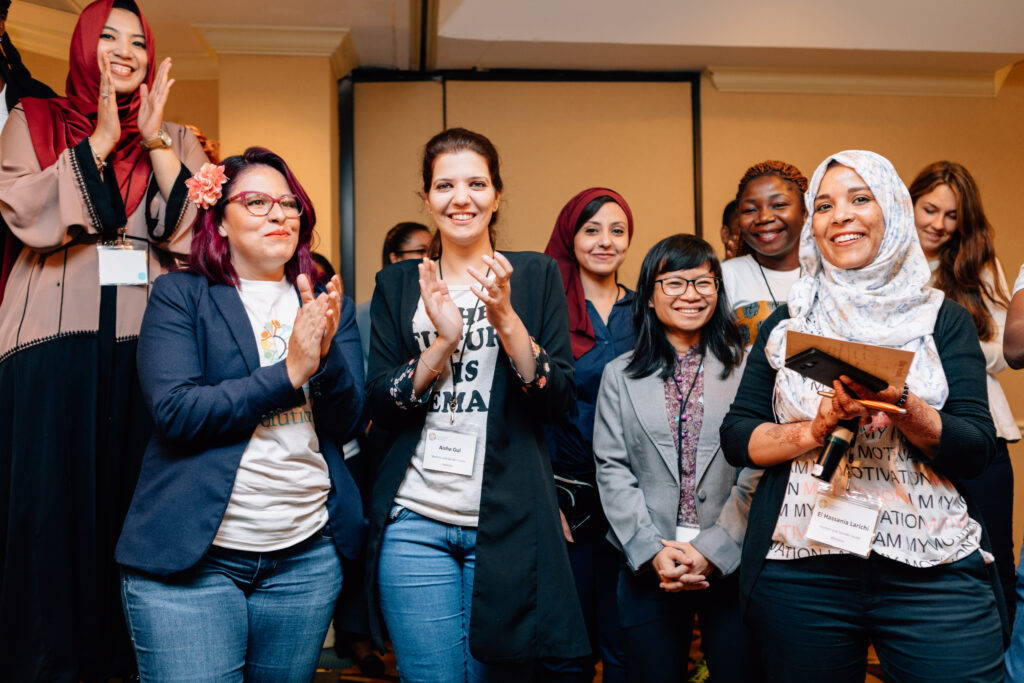
How did you design this study?
Phil: Collaboration was the heart of this study, so we needed to make sure that 1) all consortium members had the flexibility and support to contribute to the design meaningfully and 2) data collection tools were accessible and relevant for all members to facilitate with their distinct fellowship networks. As you can imagine, these were bold objectives for a consortium of over 20 organizations. Two things helped make this work.
First, we were very thoughtful in how we asked members to participate in different activities based on their availability. It took us five meetings across about three months with consortium members to design the data collection tools we would use in the study. Three were open to the whole consortium, where 30-40 people would usually attend. These meetings were about getting everyone on the same page and sourcing feedback on learning priorities that would shape the design of the tools. The other two sessions were with what we called “Design Partners,” which were a small group of members, including six organizations representative of the consortium as a whole. Here, we could unpack the feedback we collected from the whole consortium to refine learning priorities and inform decisions. From these discussions and grounded in our research questions, we created a survey and interview template accessible for every consortium partner to facilitate with their fellowship networks and a focus group framework that the IREX and Kellogg teams would manage for cross-program discussions.
After we designed the data collection tools, the second important thing we did was support consortium members with one-on-one consultations and resources on facilitating the data collection process with their fellowship network. Obviously, all of our partners contributed to this study while running incredible programs, so we wanted to make sure they felt comfortable conducting these activities in a way that did not disrupt their engagement or communication style with their alumni. These consultations provided a great space to understand the distinct considerations of each partner and plan accordingly. Also, we developed many standardized resources that partners could reference along the way. This included effective practices in reaching alumni to participate, data privacy considerations, mitigating bias, and data cleaning steps to conduct before sharing with the IREX team. This was really important to ensure consistency and quality in the data we received from the consortium for meaningful analysis.
It is really important to note that these processes took a long time, and having that time budgeted for in our work plan was what made them possible. For context, our first design meeting with the consortium started in February 2022, and our last consortium member wrapped up data collection activities in December of that year. So, nearly ten months, which you don’t often get in a lot of research initiatives. That is just a big shout-out to the commitment from the W.K. Kellogg Foundation to ensure the study was a truly collaborative research effort and understood that a lot of time was required for a project of this scale.
Xiomara: This process allowed organizations to share their insights, learnings, and expertise supporting fellowship networks. The impressive group of organizations included global representation and fellowship networks with various administrative models (e.g., mission, engagement style, and structure). So, our participants and representatives found that the learnings, experiences, and challenges presented in “their networks” were some of the same issues/items others were experiencing.
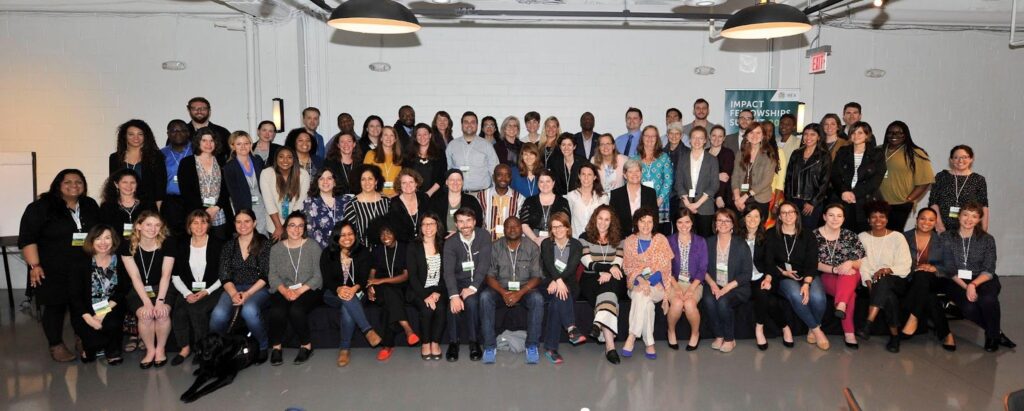
What are the FANS Report’s key findings?
Phil: There is a lot to share! Ultimately, the study reached over 1,000 alumni from 102 countries and 17 programs. This was only made possible through a massive data collection effort by our consortium of partners: 14 survey campaigns, 79 interviews, and 13 focus group discussions. Broadly, this study highlights the type of impact fellowship networks can have on alumni and the common elements that alumni value from that network in improving their work. So, we certainly encourage folks to read the full FANS report, which unpacks everything; however, two findings stand out that I think are really compelling for everyone in the fellowship sector to consider.
Key Finding #1: Personal Relationships Matter
First, personal relationships surfaced as essential in building sustained engagement and impact in a fellowship network. We anticipated personal relationships being a common value many participants may have from their fellowship experience, but we did not expect how much they would credit that as a vital factor in their engagement and advancing their work. In focus group discussions, participants shared how professional topics were common entry points that supported building connections, but personal friendships allowed those relationships to mature and be sustained – offering a stable point of connection to the network as lives and careers change over time. What made that even more compelling was when we dug into instances of changes at advanced levels of society – this refers to changes alumni make at the community and systems level that, in part, they credit to their engagement in their fellowship network – we found that sustained relationships from the fellowship network were consistently referenced as an important factor in achieving those changes. This was really exciting to see because it highlights that the network itself (i.e., the relationships that exist within it) contributes to changes at advanced levels of society and suggests that personal friendships are essential in building a sustained and engaged fellowship network.
Key Finding #2: 3 Top Alumni Needs
The second key finding is that three experiences stood out as justifications for why alumni want to engage in their fellowship network. They include: building relationships, advancing professional development, and sharing and learning from diverse perspectives. No other individual category was close to the recurring frequency we saw from these experiences across data collection activities. Obviously, each participant in a network has distinct interests and needs that program administrators should consider; however, in focus group discussions, we found that access (or the lack of access) to at least one of these experiences informed whether or not most participants would engage in the fellowship network. This was exciting to understand because it breaks down alumni priorities into three clear areas administrators can use to inform engagement.
Those are the two I think are really compelling for every fellowship program to consider, but there is a lot more I encourage folks to explore in the report – especially if your program is a few years old or in the early stages of building an alumni engagement strategy.
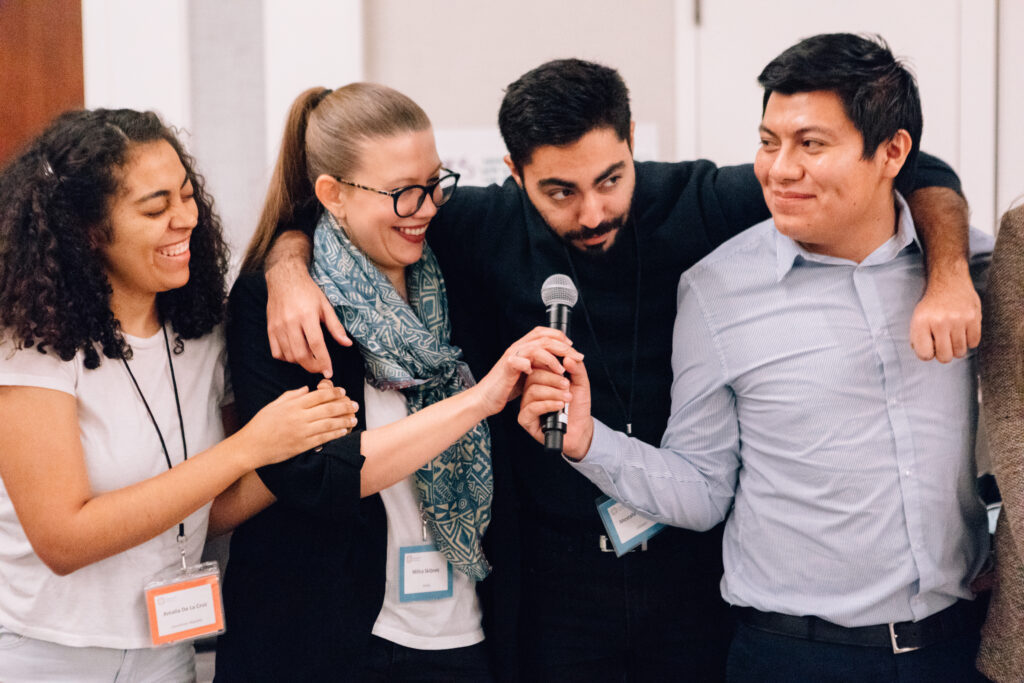
How could fellowship organizations use the FANS Report findings to improve their alumni initiatives?
Phil: This is actually where we want the conversation to mature beyond this report. Xiomara and I recently published a short article titled Five Tips for Fostering an Engaged and Impactful Fellowship Network. As it suggests, it references a few more findings than the two I just shared, so we encourage folks to explore that to see everything FANS has to offer. The five tips include the following:
-
- Make space to build personal friendships.
- Prioritize three key experiences that alumni value from their network.
- Invest in three support strategies that alumni value engaging in.
- Learn, reflect, and refine how your program advances diversity, equity, and inclusion issues.
- Advance learning in the sector by sharing your insights and experiences!
Obviously, we hope folks find other findings from the report relevant and actionable in their work, but these five things are what we are most excited to see in the fellowship community moving forward.
Do you know of any organizations that have begun acting on the findings? If so, what have they done?
Phil: Yes, a few organizations shared some experiences about how they have taken action from the report that are really exciting to see.
The first that comes to mind is from the Lemann Foundation in Brazil. They attended the most recent IFS conference in April, where we presented the findings from the FANS report. Following the event, they convened nine of their partners to explore how to put the insights from FANS into action across their network. They recently followed up with us to share that they have had a series of conversations that are still ongoing with these partners, but one next step they are planning is a collaborative research initiative like FANS specific to fellowship networks in Brazil.
Another experience that stood out was within our consortium. The Library Aid Africa program, led by Damilare Oyedele, developed their first-ever alumni network engagement plan based on the findings. Also, they just kicked off a collaborative research initiative called the Community Library Impact Study with their network of partners in Sub-Saharan Africa based on the approach we applied to FANS.
Both of those examples were incredibly exciting to hear about for two reasons. First, they put findings from the FANS report into action. Second, they advance the use of collaborative research to convene a diverse community and inform actionable improvements across a sector, which was incredibly rewarding to see resonate with others.
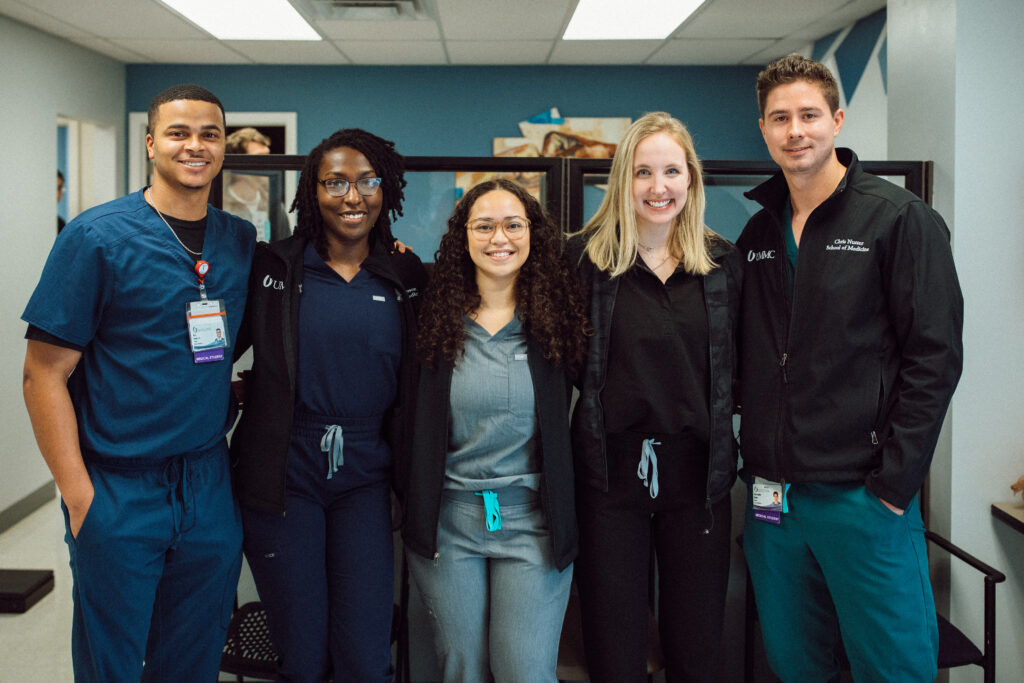
How can more fellowship organizations get involved?
Xiomara: Share your experiences and join the IFS community! We hope the FANS report encourages organizations to invest in research and learning about their own programs and how the fellowship sector benefits when those insights and experiences are shared widely. We want to move the needle on how fellowship programs can support their alumni to contribute to positive social change, and that requires spaces like the IFS community to grow.
Phil: +1 to everything Xiomara said, and I’ll just follow up with some contact details. If you’d like to connect with the IFS team at IREX, feel free to email [email protected]. If you’d like to discuss the FANS report or opportunities to promote the findings, feel free to email me directly at [email protected].
Click this link to get a copy of the Fellowship Alumni Network Study (FANS).
Also receive a copy ProFellow’s 2020 Fellowships Industry Report: Industry Trends and Promising Approaches to Impact Evaluation and DEI.
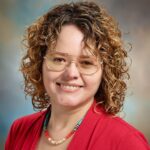
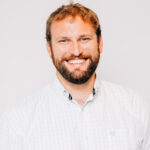
© 2023 ProFellow, LLC, all rights reserved.